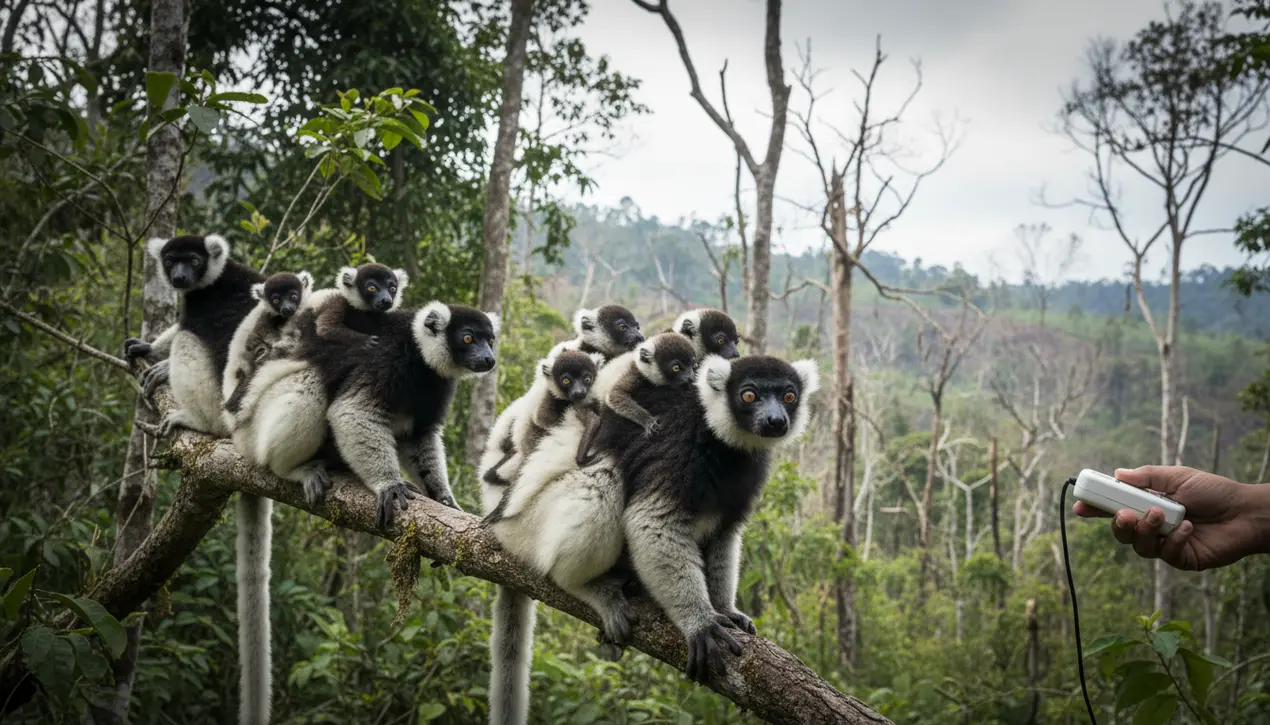
SciencebiologyEvolution and Ecology
Lemur Baby Boom in Madagascar: A Desperate 'Last Stand' Against Deforestation
RA
Rachel Adams
2 hours ago7 min read2 comments
In the fragmented, emerald canopies of Madagascar, a startling trend is emerging: a sudden, dramatic surge in lemur pregnancies. While this treetop baby boom might appear to be a conservation success, primatologists interpret it as a dire warning signal.This reproductive explosion is a known survival strategy called the 'terminal investment hypothesis,' where a species, perceiving an existential threat to its lineage, channels all its remaining energy into a final, prolific reproductive effort. It is not a sign of a healthy population, but a desperate biological gambit in the face of imminent collapse.The primary driver is human-driven deforestation, which has cleared over 40% of the island's primary forest since the 1950s. Habitat fragmentation severs ancient migratory paths, decimates food sources, and creates chronic stress for the primates.This high-stress environment can trigger a 'now or never' biological imperative, leading to a surge in births. The tragic consequence is a cohort of infants born into a world already lacking the resources to sustain them, placing immense strain on mothers and leading to higher infant mortality.This demographic bubble is destined to burst, potentially crashing local populations. The fate of these charismatic lemurs serves as a stark indicator of the broader crisis in Madagascar, a global biodiversity hotspot where over 90% of its wildlife is endemic. Without urgent, large-scale intervention that creates contiguous protected landscapes and involves local communities, this apparent baby boom may simply be the prelude to extinction.
#lemurs
#Madagascar
#baby boom
#population dynamics
#conservation
#featured
#ecology
#wildlife research
Stay Informed. Act Smarter.
Get weekly highlights, major headlines, and expert insights — then put your knowledge to work in our live prediction markets.
Related News
Comments
Loading comments...
© 2025 Outpoll Service LTD. All rights reserved.